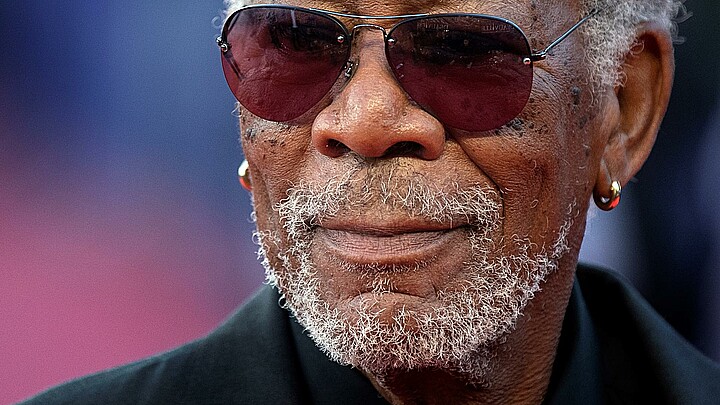Culture
Democrats to pour millions into capturing votes from Latinos and "people of color"
Democrats announced Tuesday that they are spending at least $35 million this election cycle to "persuade and mobilize" Latino, Black, Asian American, Pacific Islander and Native Hawaiian voters to help the party win control of the U.S. House in November

January 9, 2024 9:13am
Updated: January 9, 2024 11:41am
Democrats announced Tuesday they are pouring millions into a new campaign aimed at capturing votes from Latinos and “people of color,” for the 2024 election cycle in an attempt to try and win control of the U.S. House of Representatives.
NBC published a report early Tuesday morning revealing it had exclusively obtained information from the Democratic Congressional Campaign Committee in advance of announcement, which will commit $35 million in spending, a number that exceeds the $30 million the DCCC spent in 2022 cycle.
One DCCC spokeswoman, Missayer Boker, told NBC the committee’s mobilization efforts concerns stemmed from concerns Republicans are going to “suppress the vote of people of color.”
By “people of color” the DCCC is targeting their campaign to ”persuade and mobilize” Hispanic Americans, Asian Americans, Blacks and Pacific Islanders, the report said.
The DCCC, which raises money to get Democrats elected to the House, has already named the campaign “Power the People.”
Power is reportedly an acronym that stands for “persuade, organize, welcome, educate and reach.”
The Democratic Party has long relied on winning the Latino vote and votes from “people of color” but the Republican Party has recently captured more support from those communities.
ADN America reported on Jan. 3 that President Biden has lost a significant percentage of his base among Hispanics and Blacks, according to a new USA TODAY/Suffolk University Poll.
That poll says 20% of each of the groups are now seeking a third-party alternative, and said Biden is heading into the election year “showing alarming weakness among stalwarts of the Democratic base, with Donald Trump leading among Hispanic voters and young people.”
According to USA TODAY and Suffolk University, the president is now trailing among Latino voters by 5 percentage points, 39%-34%, a huge shift from 2020 when he overshadowed Trump in the demographic by more than 2 to 1, 65%-32%.
While Trump still has the support of 12% of Black voters (the same percentage he clung to in 2020), the president has lost support—his base has declined from 87% support of Black voters to 63%, according to a report from the Roper Center.
In another poll reported by ADN America on Dec. 14, Mi Familia Vota and UnidosUS (the largest Latino non-profit advocacy group in the U.S.) the top issues Hispanics are most concerned with fiscal issues that are typically championed by Republicans.
According to the November 2023 National Survey of Latino Voters, which entailed interviews more than 3,000 Hispanic Americans, Hispanic Americans are most concerned about “inflation/rising cost of living,” “jobs and the economy,” health care costs.
Latinos ranked Border security as the sixth highest priority and education and public-school quality as seventh.
Latinos ranked social issues typically championed by Democrats such as abortion as ninth, climate change as 12th, and “racial justice” as 13th.
When asked about their three top areas of concern, 54% of Hispanics named inflation and the increase in cost of living as their top priorities while 44% named jobs and the economy and 33% named health care.
“Democrats have long been able to count on winning larger percentages of Latino, Black, Asian American, Pacific Islander and Native Hawaiian voters. But the GOP has sliced into those voter shares in recent elections, largely in Latino and Asian American, Pacific Islander and Native Hawaiian communities. Some recent polls have also found waning enthusiasm among Black voters for President Joe Biden's campaign,” NBC conceded in the early morning Tuesday report.
The national news network interviewed a Texan Democratic strategist, Matt Angle, who said it was “encouraging” the DCCC was finally making “the hard commitment now” in the Lone Star state.
On June 23, ADN America reported that, according to new data published by the U.S. Census Bureau, the Hispanic American population in Texas has grown larger than the non-Hispanic white population.
A Vintage 2022 (V2022) population estimate said that Hispanics now dominate the Lone Star state with more than 12 million residents, as compared to non-Hispanic whites who are estimated to be at 11.9 million. The “vintage year” (V2022) refers to the final year of a time series in which the U.S. Census estimates the population and housing unit on a flow basis throughout each year.
"You can’t expect to realize the benefit of your base voters unless you invest in them — you have to earn that over and over again," Angle told NBC.
The DCCC has already spent some of the $35 million in investing and is redirecting its efforts to new tactics such as surveying voters.
José Muñoz, a DCCC spokesman said Hispanic Americans spend considerable time on YouTube.
“Obviously we are going to do smart, targeted outreach to understand nuances not just between groups, but between different regions and localized by district. For example, what may speak to and resonate with Latinos in Florida is different from those in the Central Valley” of California, Muñoz told NBC.
According to Muñoz, some congressional districts have more than one large population group Democrats want to mobilize to voting booths.
California's 45th Congressional District, which includes affluent suburban towns such as Irvine and Mission Viejo, 39% of the population is Asian American Pacific Islander, and 31% is Latino, according to analysis by Census Reporter.
In Las Vegas, Nevada's 1st Congressional District, nearly one third, 30% of voters are Hispanic—10% are Black and 9% are Asian American Pacific Islanders.
The Democrats also plan to create media that reaches people in their native language and even their language of choice including “Spanglish” and aim to form alliances with community leaders in Latino communities with the aim of registering and rallying voters.
The party also plans to provide information on state election and voting laws and using an expansion tool called “Juntos” to track what it terms as disinformation on social and regular media that is aimed at Hispanic and other communities.
On Oct. 25, ADN America reported that The number of eligible Hispanic American voters has increased by 4.7 million since 2018, according to a July 2023 analysis conducted by the Pew Research Center.
While Democrats still outpace Republicans in terms of voter registration, a higher number of Latinos voted Republican in the 2022 midterm elections than they did in 2018, the report says.
“While Hispanic voters continued to favor Democrats over Republicans, a higher share of Hispanic voters supported GOP candidates in the 2022 election compared with in 2018. In November, 60% of Hispanic voters cast ballots for Democrats compared with 39% who supported Republicans. This 21-point margin is smaller than in 2018, when 72% of Hispanic voters favored Democrats and 25% supported Republicans,” the analysis says.











